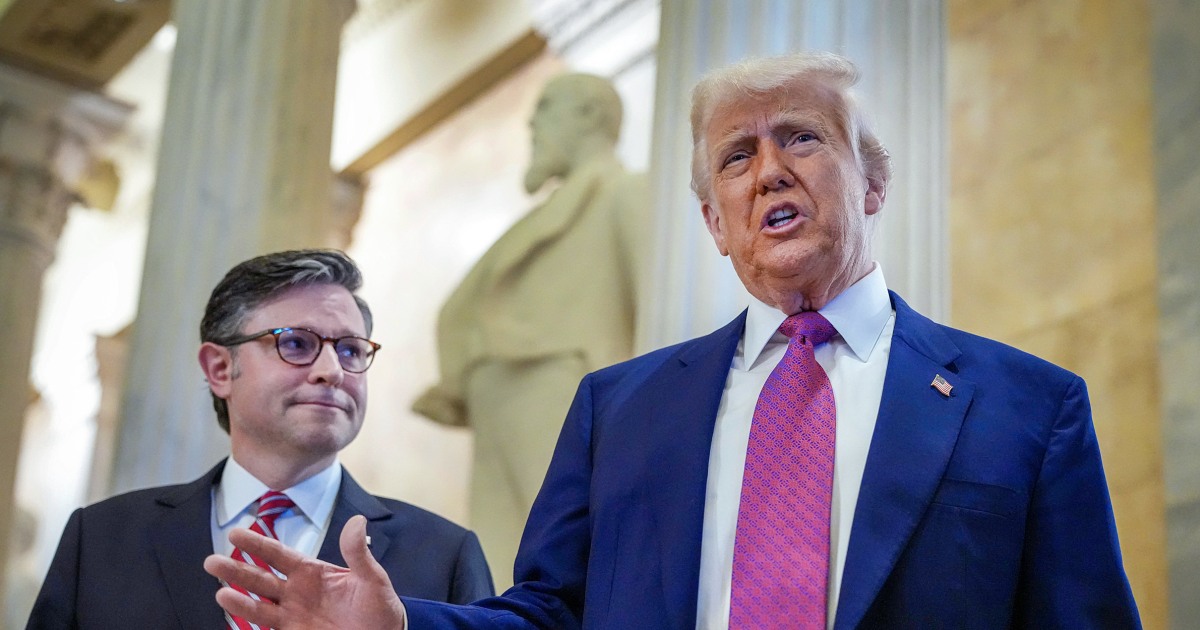Donald Trump’s agenda on trade tariffs suffered a dramatic setback last week when two separate courts — a three-judge panel of the Court of International Trade and a U.S. district court judge — ruled that the White House’s gambit is illegal. Those rulings were soon paused by an appeals court, but the president’s back-to-back defeats represented an important embarrassment on one of his top policy priorities.
As the rulings reached the public, Fox News’ Peter Doocy pressed White House press secretary Karoline Leavitt on a straightforward point: “So the courts are basically telling you guys they think the White House’s policies, the president’s policies, are in some way against the law. Why can’t President Trump ask the [Republican-led Congress] to just make a new law?”
The president’s spokesperson insisted that no new laws are necessary because, according to Leavitt, the Constitution already empowers Trump to act unilaterally on trade policy. While federal courts and a plain reading of constitutional text suggest she’s wrong, that was the White House’s line on Thursday afternoon.
But hours later, Trump himself published some related thoughts on his social media platform, which went largely overlooked because a relevant detail was included partway through a lengthy online tirade. While whining about the Federalist Society, of all things, the president added these important sentences:
The horrific decision stated that I would have to get the approval of Congress for these Tariffs. In other words, hundreds of politicians would sit around D.C. for weeks, and even months, trying to come to a conclusion as to what to charge other Countries that are treating us unfairly. If allowed to stand, this would completely destroy Presidential Power — The Presidency would never be the same!
In other words, the courts believe that Trump should act within the law, directing the president — who claims to be a world-class dealmaker with an unrivaled expertise in negotiating complex deals — to work with a Congress led by his own party.
But by his own admission, Trump doesn’t want to.
As a practical matter, the White House likely realizes that if the president were to play by the rules, go to Capitol Hill, and seek lawmakers’ approval for a new legal framework on international trade tariffs, the effort would likely fail because such a policy wouldn’t have the necessary votes to advance.
But Trump’s written statement points in an entirely different, and far more unsettling, direction. To hear the president tell it, the process of making laws and policy the proper way is overly burdensome. Checks and balances are all fine and good until they get in the way of him doing what he wants to do.
He’s the president, the argument goes, and he should therefore be free to govern in ways that please him. Operating within a legitimate legal framework gets in the way of progress — at least as defined by Trump — so it’s unfair to allow statutes to tie his hands.
If the president stuck to the law, and asked the Republican-led House and Republican-led Senate to give him the authority the courts say he needs, this would, according to Trump, “completely destroy Presidential Power.” This prompted The New Republic’s Greg Sargent to note, “In other words, preserving presidential power by definition means not accepting such lawful limits on it.”
Many of Trump’s critics are eager to shine a light on his authoritarian-style vision. Occasionally, he makes their job easy.
This post updates our related earlier coverage.
